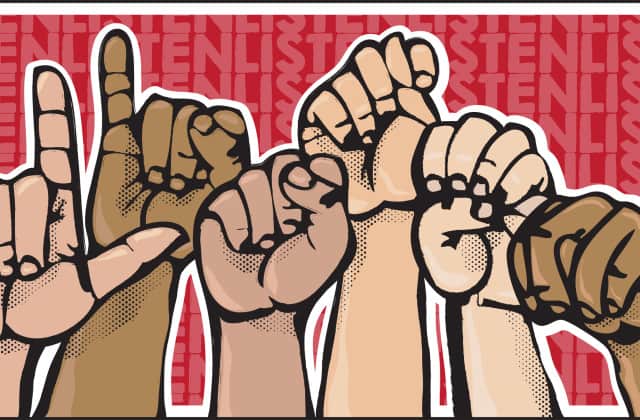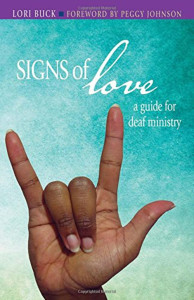Ministering effectively to the Deaf community
“They can’t hear, but they’re not blind. Can’t they just read the Bible?”

I get this often when I speak to groups of hearing people, who ask me questions that those serving in a spoken-language context would never be asked. No one would ever suggest that minority language groups should be expected to read God’s Word in the majority language. Yet this is often expected for the Deaf.
Here’s an example of why this is problematic. Let’s say you translate Psalm 23 word for word into ASL, making no allowances for the syntactic differences between the two languages. The first sentence—”The Lord is my Shepherd; I shall not want”—signed in that word order in ASL actually means: “I do not want the Lord to be my Shepherd.”
Deaf people struggle with reading for at least three reasons:
1) The education system does a very poor job of teaching Deaf people to read. In many countries deaf people are not educated at all.
2) Deaf people are almost always reading their second language, not their heart language. Second-language readers often read their second language at an 80 percent comprehension rate. In addition to the general lack of resources for Deaf readers to determine the meaning of new vocabulary, that makes sign language Bible translation key to their spiritual maturity.
3) As seen in the example above, signed languages convey many linguistic features very differently from spoken languages (e.g. verb tense, pronouns, etc.), making it difficult for the average Deaf reader to comprehend the text’s message.
My (hearing) daughter leads a Deaf ministry in Boise, Idaho. A young Deaf lady began attending the Deaf Bible study, and she and my daughter developed a sweet friendship. At one point this young believer said to my daughter, “I wish I could have a relationship with God like you do.”
My daughter replied, “But of course you can!”
“How can I?” the young woman asked. “I’m Deaf and I don’t speak. How will God understand me?”
Deaf people often see God as “hearing.” They have struggled to communicate with hearing people all their lives. Thankfully my daughter was able to explain to her that God understands her signs—even hears her thoughts. She was so excited! She immediately began to pray about everything. You couldn’t tell her a problem without her wanting to stop and tell God about it right away. Today that young lady and her husband are being mentored to be the leaders of the Deaf church in Boise.
Carole Brenton is a member of Wycliffe USA assigned to support the work of DOOR International in Africa and has worked with and among the Deaf in the US for the past 35 years.
R ecommended:
ecommended:
Signs of Love: A Guide for Deaf Ministry by Lori Buck
Over 28 million Americans are considered deaf or hard of hearing. This makes it pretty likely that many houses of worship have members that are Deaf. Are they being served? Consider the impact a deaf ministry could have in your church and community.
In this unique resource, author Lori Buck offers a thorough introduction to Deaf culture and practical guidelines for developing a Deaf ministry that goes beyond learning American Sign Language and interpreting Sunday morning worship.


